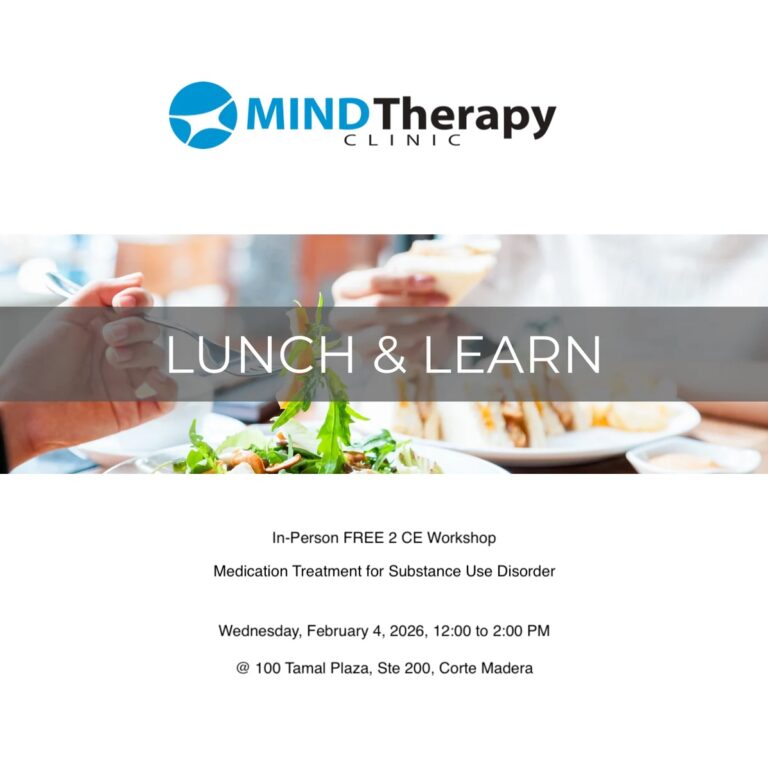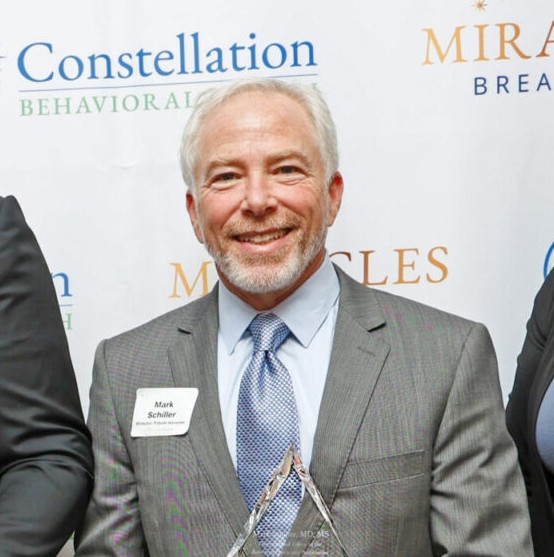Schizophrenia
Schizophrenia and other psychotic disorders are treatable; recovery is possible with the right team.
Schizophrenia, schizoaffective disorder, and related psychotic conditions can affect thinking, perception, mood, and daily functioning. Symptoms may include hearing or seeing things others don’t (hallucinations), fixed unusual beliefs (delusions), disorganized speech/behavior, social withdrawal, and changes in motivation or self-care. These conditions often co-occur with depression, anxiety, trauma, substance use, or bipolar-spectrum symptoms – so we use an integrated, psychiatry-led approach.
Not Sure if You Need Help?
Not Sure if You Need Help?
If you’re experiencing:
New or worsening hallucinations or delusional beliefs
Paranoia or suspiciousness that interferes with school/work/relationships
Disorganized or illogical speech/behavior
Noticeable decline in self-care, daily tasks, or social engagement
Symptoms after substance use that don’t fully clear
Concern from family/supports about safety or functioning
Take this survey if you’re uncertain whether what you’re experiencing is related to schizophrenia.
*This should not be used to replace the recommendations or diagnoses provided by a medical or mental health professional. We encourage you to share your results with a mental healthcare professional who can help you determine the next steps that are right for you.
What are co-occurring disorders?
Co-occurring disorders (also called dual diagnosis) means a substance use disorder happens at the same time as one or more mental health conditions. Common combinations include depression, anxiety, PTSD/trauma, bipolar spectrum, ADHD, OCD, and personality-related difficulties. Treating only substance use – or only mental health – often leads to short-lived results. Durable recovery requires addressing both together.
–
Why integrated treatment works
- Substance use can mask or worsen mood, anxiety, and trauma symptoms.
- Mental health symptoms can trigger cravings and relapse risk.
- Coordinated care reduces handoffs, conflicting plans, and gaps that derail progress.
- Patients get one team, one plan, and consistent skills across settings.
–
How we integrate care at Mind Therapy Clinic
1) Comprehensive assessment
Psychiatry-led evaluation of substance use patterns, withdrawal risk, and mental health history; medical review and labs as needed.
2) One plan, one team
Your psychiatrist, individual therapist, family therapist, group facilitators, and case manager meet weekly to align goals and adjust care.
3) Evidence-based therapies
CBT, DBT, ACT, trauma-informed care, motivational interviewing/MI, relapse-prevention, and skills groups that apply to both conditions.
4) Medications when appropriate
Medication management for mood/anxiety/ADHD and MAT (e.g., buprenorphine, naltrexone, acamprosate) when clinically indicated.
5) Integrated family support
Education, boundaries, and coaching so home supports recovery rather than stress.
6) Step-up/step-down continuity
Seamless movement across Outpatient ↔ IOP ↔ PHP, with the same core team; option to pair IOP/PHP with 24/7 supportive living.
7) Measurement-based care
Regular symptom and functioning measures for both substance use and mental health—shared with you to track progress together.
ChatGPT said:
At Mind Therapy Clinic, patients with schizophrenia are treated by our expert psychiatrists with a focus on stabilizing symptoms first and then building the skills needed to function day to day. Treatment typically starts with evidence-based medication management (including long-acting injectables when helpful) to reduce hallucinations, delusions, and disorganized thinking.
Once symptoms are more stable, we layer in therapy and skills work – like CBT for psychosis, social/communication skills, and illness-management education – to help patients reality-test, cope with voices or paranoia, and stay engaged in work, school, or relationships. In addition, families are invited in for education and relapse-prevention planning.
Schizophrenia Symptoms
Some of these symptoms may include the following. If any of these sound familiar to your situation, do not hesitate to reach out.
- Hallucinations
- Delusions
- Thought disorder
- Movement disorder
- Loss of motivation and/or enjoyment in daily activities
- Withdrawal from social life
- Difficulty showing emotions
- Difficulty functioning
- Difficulty processing and retaining information
- Trouble focusing or paying attention
Personalized Treatment
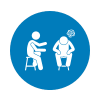
Psychiatric Diagnosis
Schizophrenia most typically first presents symptoms in the late teens or early adulthood. The diagnosis can be complicated at this age as this is a period in which many individuals experiment with or regularly use drugs. Marijuana, cocaine, methamphetamine and other drugs can provoke psychosis. Careful psychiatric evaluation and neuropsychological evaluation are important in making an accurate diagnosis.
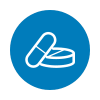
Medication
Antipsychotic drugs are typically used for the management of schizophrenia and other severe mental illnesses. Some patients, do not respond to medications, and a few may seem not to need them. Since it is difficult to predict which patients will fall into what groups, it is essential to have each individual treatment plan for long-term follow-up, so that the treatment can be adjusted and problems are addressed in a timely manner.

Individual Psychotherapy
This involves regular sessions between the patient and a psychotherapist focused on past or current problems, thoughts, feelings or relationships. Through this contact with a trained professional, people with schizophrenia become able to understand more about the illness, to learn about themselves and to better handle the struggles of their daily lives. They become better able to differentiate between what is real and, by contrast, what is not and can acquire beneficial problem-solving skills.
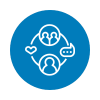
Family Therapy and Education
Research has consistently shown that people with schizophrenia and other severe mental illnesses who have involved families fare better than those who battle the condition alone. If possible, all family members should be involved in the long term treatment plan.
Intensive Outpatient Program (IOP)
3 Day IOP
Includes:
The 3-day program includes 2 group therapy sessions per day.
One individual psychotherapy session per week (master’s level provider or higher)
Psychiatric Evaluation & Medication Management
Family Therapy (once a week)
Case management services of up to two (2) hours per month.
Adjunct Services*
*These are additional clinically indicated services that are customizable and prescribed by the treating psychiatrist.
4 Day IOP
Includes:
The 4-day program includes 2 group therapy sessions per day.
One individual psychotherapy session per week (master’s level provider or higher)
Psychiatric Evaluation & Medication Management
Family Therapy (once a week)
Case management services of up to two (2) hours per month.
Adjunct Services*
5 Day IOP
Includes:
The 5-day program includes 2 group therapy sessions per day.
One individual psychotherapy session per week (master’s level provider or higher)
Psychiatric Evaluation & Medication Management
Family Therapy (once a week)
Case management services of up to two (2) hours per month.
Adjunct Services*
Partial Hospitalization Program (PHP)
Includes:
About 3 to 4 therapy groups per day
Two individual psychotherapy sessions per week
Psychiatric evaluation & medication management
Family therapy once a week
Case management services: 30 mins to 1 hour per week
Specialized services can be arranged at an addition cost, by mutual agreement based on need
Therapy Groups
Learn about coping strategies to reduce anxiety symptoms and gain a better understanding of the thoughts, feelings, and behaviors that perpetuate anxiety—all within a caring and supportive environment.
Anxiety Therapy
Upcoming eventBuilding Strong Relationships Group
Upcoming eventCognitive Behavioral Therapy
Upcoming eventDepression and Loss Group
Upcoming eventDistress Tolerance Group
Upcoming eventEmotion Regulation Skills
Upcoming eventEmotions and Compulsions
Upcoming eventFamily and Relationship Issues
Upcoming eventGoals Group
Upcoming eventHealthy Living Group
Upcoming eventIncreasing Connection
Upcoming eventInterpersonal Effectiveness Skills
Upcoming eventLife Satisfaction Group
Upcoming eventMindful Process Group
Upcoming eventMindfulness Skills Group
Upcoming eventPost-Traumatic Growth
Upcoming eventRelapse Prevention Skills Group
Upcoming eventSelf Compassion Group
Upcoming eventSelf-Acceptance Group
Upcoming eventShining a Light on Recovery
Upcoming eventStress and Addiction Group
Upcoming eventTaking Charge Group
Upcoming eventTaming Anxiety Group for Teens
Upcoming eventThe Next Right Thing
Upcoming eventWomen’s Psychotherapy Group
Upcoming event
We’re dedicated to providing valuable information and support for anyone who is struggling with mental health issues. Our extensive options for group therapy are led by highly experienced medical professionals. Explore our informative articles to help you better understand and manage your anxiety. Our goal is to provide a safe and supportive community where you can learn, connect, and grow.

